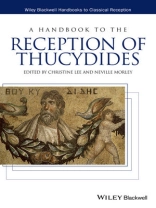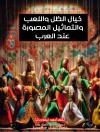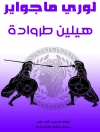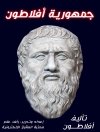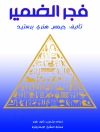A Handbook to the Reception of Thucydides offers an
invaluable guide to the reception of Thucydides, with a strong
emphasis on comparing and contrasting different traditions of
reading and interpretation.
* Presents an in-depth, comprehensive overview of the
reception of the Greek historian Thucydides
* Features personal reflections by eminent scholars on the
significance and perennial importance of Thucydides’ work
* Features an internationally renowned cast of
contributors, including established academics as well as new voices
in the field
Tabela de Conteúdo
Notes on Contributors viii
Acknowledgments xiv
Introduction 1
Christine Lee and Neville Morley
Part I Scholarship, Criticism, and Education 11
1 Thucydides’ Ancient Reputation 13
Valérie Fromentin and Sophie Gotteland
2 The Renaissance 26
Marianne Pade
3 The Speeches of Thucydides and the Renaissance Anthologies 43
J. Carlos Iglesias-Zoido
4 Carving Up Thucydides 61
Jeffrey S. Rusten
5 Thucydides as an Educational Text 75
Oliver Schelske
6 On Translating Thucydides 91
Emily Greenwood
Part II Thucydides the Historian 123
7 Thucydides and His ‘Contemporaries’ 125
Ellen O’Gorman
8 The Thucydidean Clio between Machiavelli and Hobbes 141
Francisco Murari Pires
9 The Reception of Thucydides in Eighteenth- and Nineteenth-Century France 158
Pascal Payen
10 On Historical Time and Method 176
Alexandra Lianeri
11 Thucydides in Nineteenth-Century Germany 197
Klaus Meister
12 Thucydides in the Twentieth and Twenty-First Centuries 218
Jon Hesk
Part III Thucydides the Political Theorist 239
13 Hobbes and His Contemporaries 241
James Jan Sullivan
14 ‘L’historien des politiques’ 261
Ben Earley
15 The Straussian Thucydides 278
Seth N. Jaffe
16 Realism, Constructivism, and Democracy in the History 296
John Zumbrunnen
17 Thucydides and the Problem of Citizenship 313
Gerald Mara
18 Thucydides and Democratic Horizons 332
Christine Lee
Part IV Thucydides the Strategist 353
19 The Reception of Thucydides in the History of International Relations 355
Edward Keene
20 Thucydides and the Just War Tradition 373
Cian O’Driscoll
21 Thucydides the Realist? 391
Laurie M. Johnson
22 Thucydides Our Father, Thucydides Our Shibboleth 406
Timothy J. Ruback
23 Thucydides in the Staff College 425
Andreas Stradis
Part V Thucydidean Themes 447
24 Thucydides and the Plague 449
Helen King and Jo Brown
25 The Reception of Thucydides’ Archaeology 474
Tim Rood
26 Thucydidean Concepts 493
Lorna Hardwick
27 Thucydides, Science, and Late Modern Philosophy 512
Thom Workman
28 Thucydides in Modern Political Rhetoric 529
Elizabeth Sawyer
Part VI Thucydidean Reflections 549
29 Why We Need To Read Thucydides – Even When ‘We’ Are Only A Few 551
Hunter R. Rawlings III
30 Why Teach Thucydides Today? (And If We’re At It, How?) 560
Clifford Orwin
31 Everywhere Monuments of Good and Evil: Thucydides in the Twenty-First Century 568
Gregory Crane
32 Receiving the Reception 579
Geoffrey Hawthorn
Part VII Conclusion 589
33 The Idea of Thucydides in the Western Tradition 591
Neville Morley
Index 605
Sobre o autor
Christine Lee is a tutor at St. John’s College,
Annapolis Maryland.
Neville Morley is Professor of Ancient History at the
University of Bristol. He is the author of Antiquity and
Modernity (Wiley Blackwell, 2009), The Roman Empire: Roots
of Imperialism (2010), and Thucydides and the Idea of
History (2014), and co-editor of Thucydides and the
Modern World (with Katherine Harloe, 2012).
